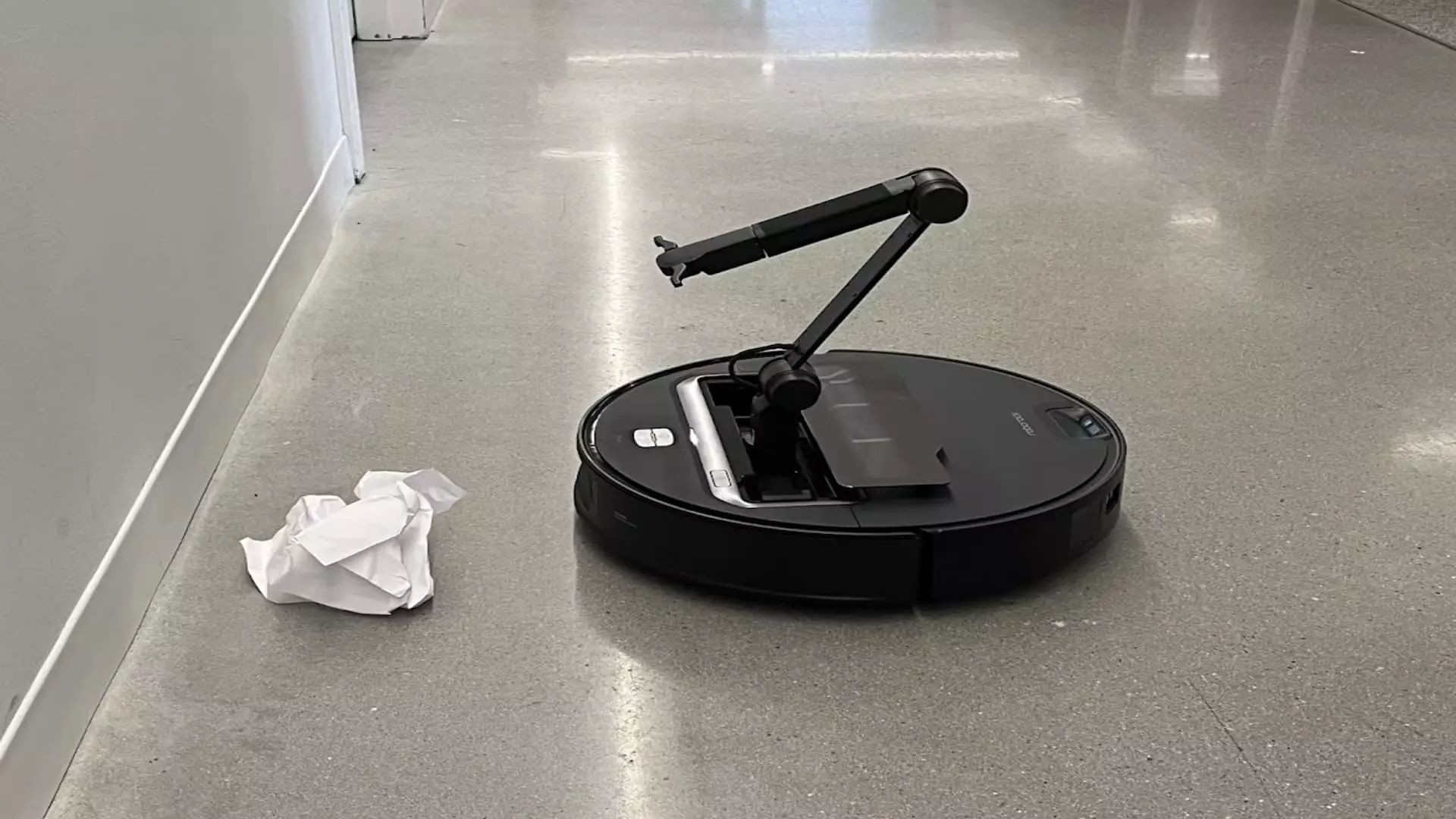In a striking display of advancement in home cleaning technology, Roborock, a leading player in the robot vacuum cleaner market, has recently unveiled their latest model featuring a noteworthy innovation: a folding arm designed for the removal of everyday obstacles like socks and small towels. The integration of artificial intelligence (AI) into this feature marks a significant milestone in the evolution of domestic robotics. As home automation continues to gain momentum, Roborock’s new offering highlights the company’s ambition to establish robot vacuum cleaners as indispensable household appliances, comparable to washing machines in their utility.
During a recent interview, Roborock’s President, Quan Gang, expressed his strong conviction that AI will play a critical role in the impending mainstream success of robot vacuum cleaners. He forecasts that within a span of three years, thanks to the accelerating adoption of AI technologies, robot vacuums could firmly entrench themselves in the everyday cleaning routines of households. The advanced capabilities offered by AI, which allows for the intelligent detection and removal of small obstacles, could set the stage for a transformative shift in how consumers view and interact with cleaning devices.
The Roborock Saros Z70 will be equipped to autonomously identify and deal with items weighing up to 300 grams (approximately 10.58 ounces). This breakthrough not only enhances the effectiveness of these machines but also enriches the user experience by minimizing the frustration often associated with manual obstacle removal. Scheduled for release across key global markets within the first half of the year, the Saros Z70 is poised to attract significant attention, though pricing details remain undisclosed.
The recent advances in robot vacuum technology have sparked intense competition in the market. With numerous brands, including Chinese startups, vying for consumer attention since the introduction of the Roomba in 2002, the landscape has become increasingly crowded. Roborock, having made its foray into the U.S. market in 2018, has seen a surge in sales over the past year. However, despite the rapid growth, penetration rates for robot vacuum cleaners in developed nations remain relatively low—slightly over 10%—and even lower in developing markets. This scenario presents both challenges and opportunities for companies like Roborock, which are eager to leverage AI advancements to boost sales and customer adoption rates.
In the competitive sphere, Roborock has managed to capture the attention of critics and consumers alike. Recent accolades from The Verge and Wired recognized various Roborock models as top-of-the-line options in the robot vacuum category. Notably, the S8 MaxV Ultra has been lauded for its cutting-edge ‘hands-free’ features, while the Qrevo S stands out for its sophisticated lidar-based navigation, capable of distinguishing between different floor types. Even though these models can carry hefty price tags—up to nearly $1,800—the demand for high-performance vacuum cleaners continues to grow.
Roborock’s financial trajectory has shown promising growth. Recently, shares of the Shanghai-listed company experienced a slight uptick, following the announcement of the Saros Z70 and its innovative features. According to reports, there has been an impressive 23.2% increase in operating revenue for the initial three quarters of 2024, totaling approximately 7 billion yuan ($960 million), alongside a profit margin of 1.47 billion yuan.
Investments in research and development have been a cornerstone of Roborock’s strategy since its inception in 2014. With dedicated laboratories in Shanghai and Shenzhen, the company has prioritized technological innovation, focusing on AI to propel its product development. Quan has acknowledged the challenge of sourcing qualified talent for their research teams, yet Roborock successfully allocated 9.1% of its operating revenue toward R&D over the past year, marking an increase from previous years.
As Roborock continues to enhance its technological offerings, the introduction of AI-driven features such as obstacle removal could reshape consumer attitudes towards robot vacuums. By focusing on innovation and addressing the market’s needs, Roborock aspires not just to remain a competitive force but to define the future of home cleaning. If success continues on this trajectory, it won’t be long before robot vacuum cleaners become an essential fixture in households around the globe. As the industry evolves, the emphasis on AI integration stands to revolutionize cleaning, paving the way for smarter and more efficient home management solutions.

